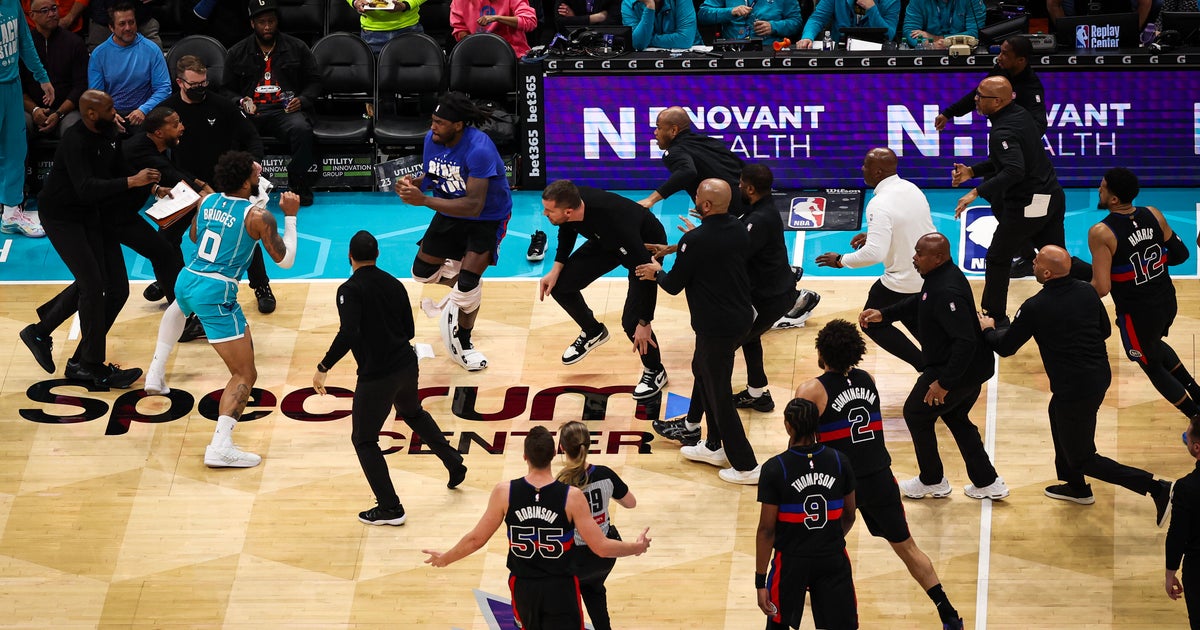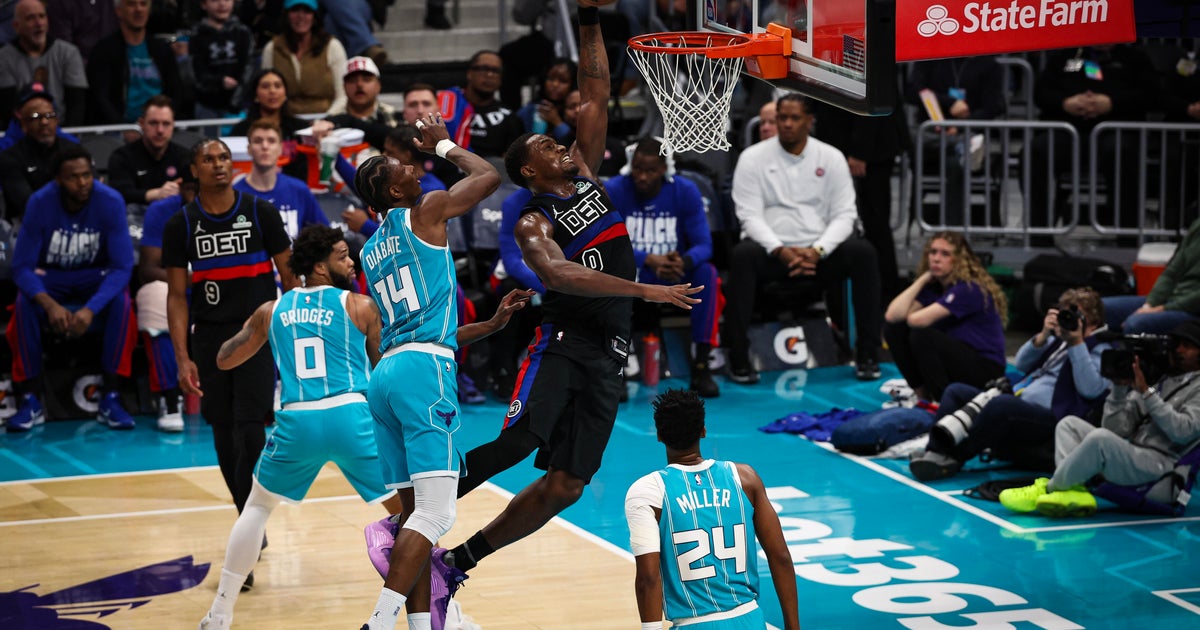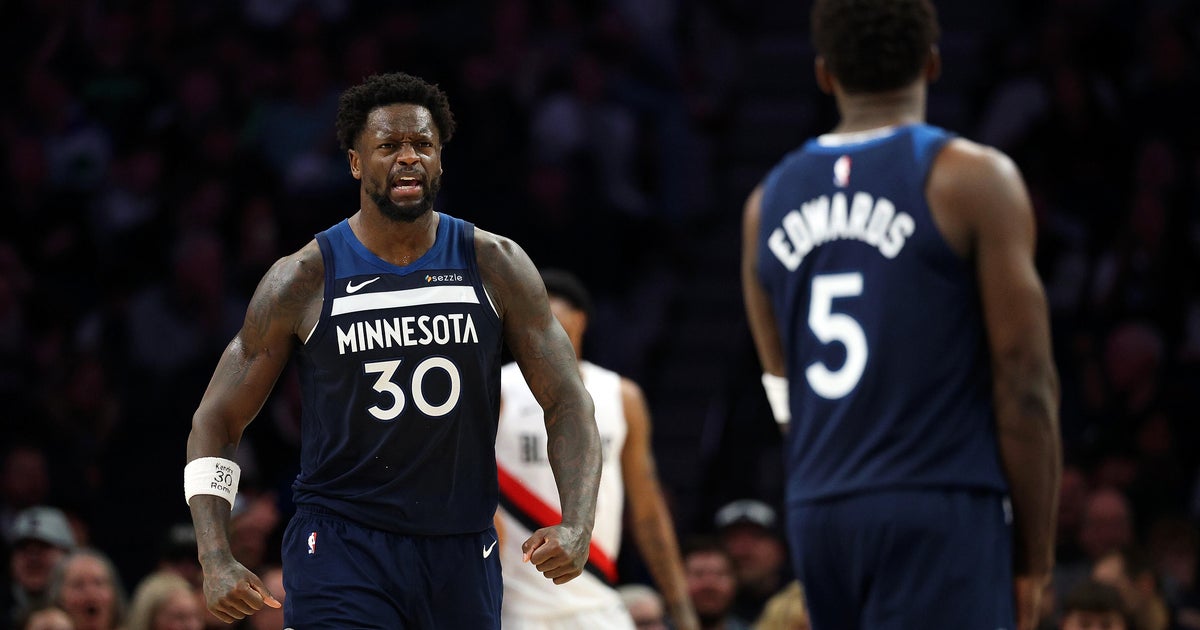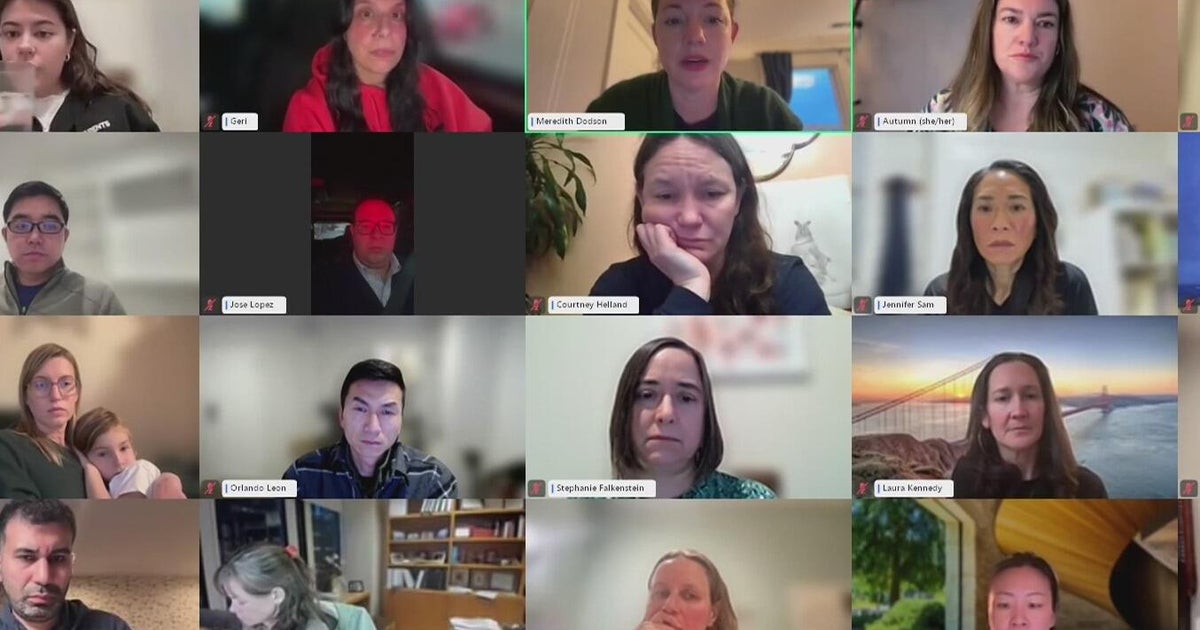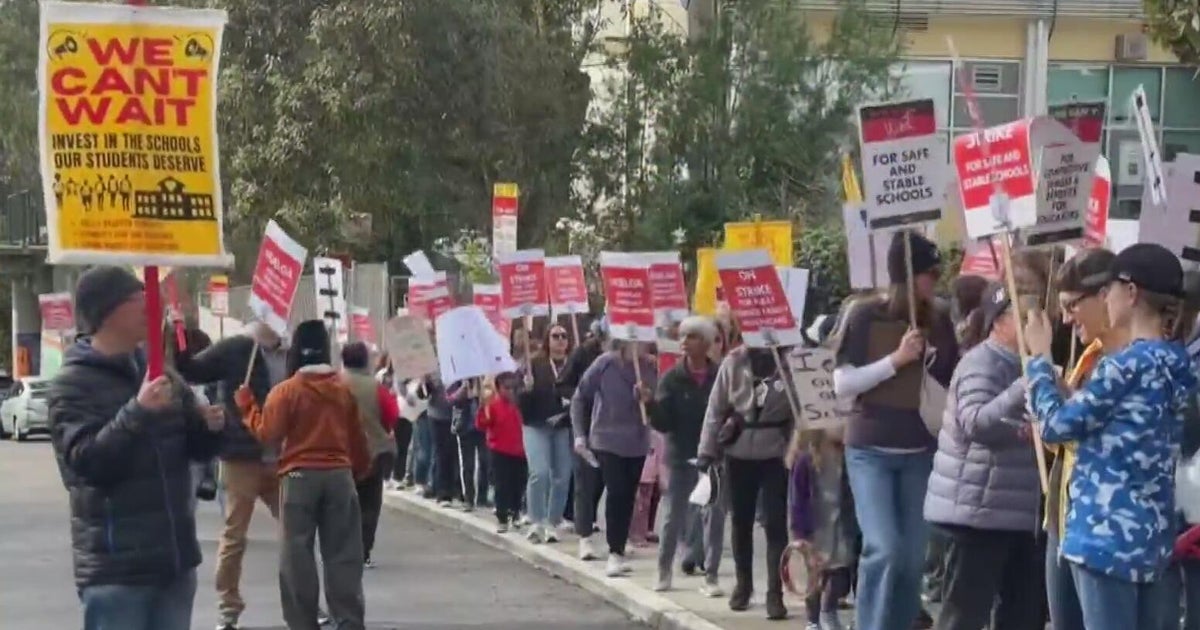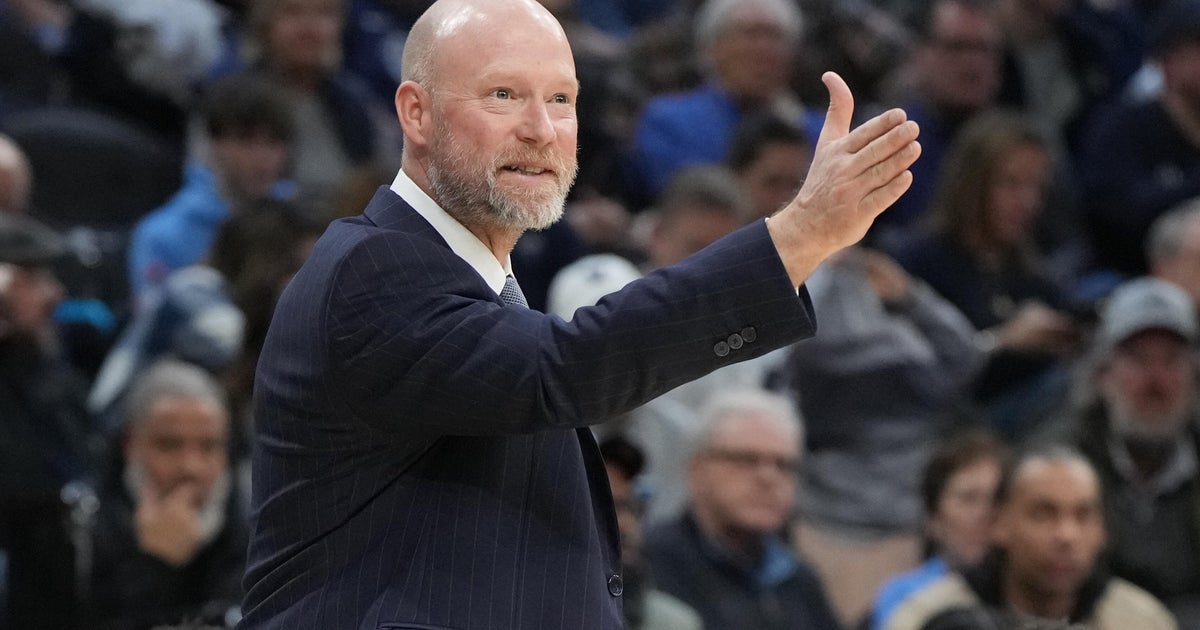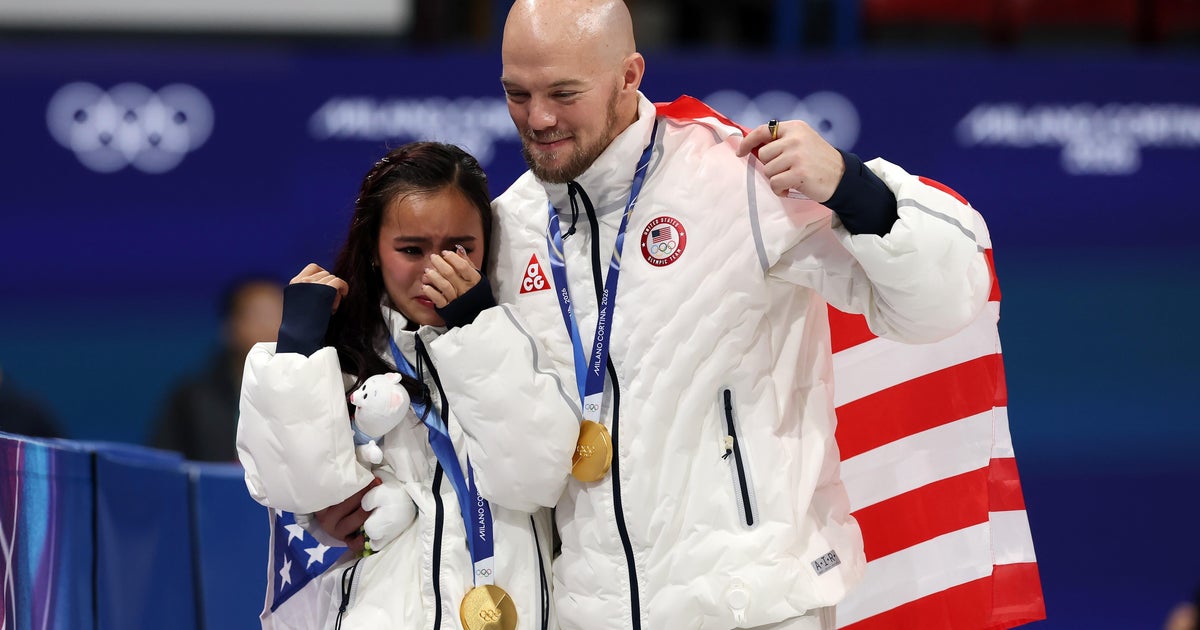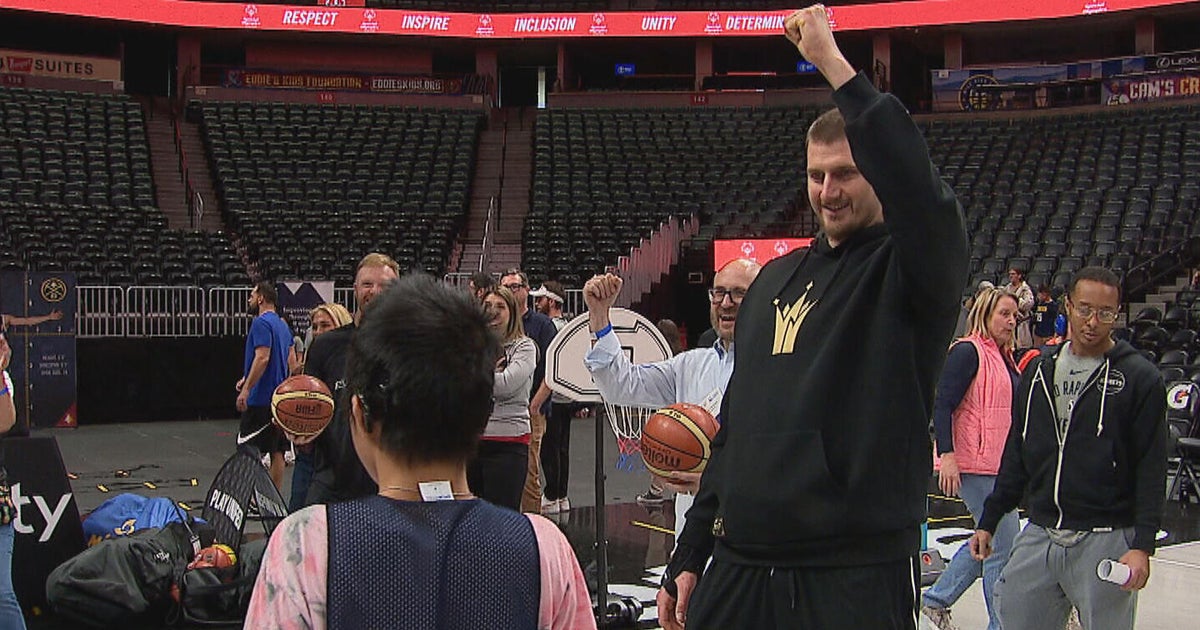NBA Labor Talks Extend To Monday
NEW YORK -- Facing a deadline for the cancellation of regular season games, negotiators for the NBA and its players' association met for nearly 5 1-2 hours Sunday night and will reconvene Monday afternoon for more bargaining.
Commissioner David Stern and deputy commissioner Adam Silver emerged from the Upper East Side hotel where negotiations took place at 11:50 p.m. ET, and Stern issued a brief statement before walking away.
"We don't have any comment at all, other than we are breaking for the night and reconvening tomorrow afternoon," Stern said.
Stern has said he will cancel the first two weeks of the regular season if a new collective bargaining agreement isn't agreed to by Monday. He did not address the cancellation deadline in his statement, and a person with knowledge of the talks said both sides agreed it would not be addressed with reporters.
"We're not necessarily any closer than we were going into tonight," union president Derek Fisher said. "But we'll back at it tomorrow and we'll keep putting time in."
According to a person briefed on the talks, the primary focus Sunday night was system issues -- salary cap, luxury tax, etc. -- leaving Monday to reconcile those complicated items with the most important point of all: the split of revenues between owners and players. Fisher characterized the meeting as "intense."
"We're going to come back at it tomorrow afternoon and continue to try and put the time in and see if we can get closer to getting a deal done," Fisher said.
The last-minute meeting was called after league and union officials originally couldn't agree on the parameters of one final bargaining session to save regular season games. On Friday, officials from the National Basketball Players Association requested a meeting, but were met with a precondition from the league that they agree to a 50-50 split of revenues that was offered in Tuesday's bargaining session. The union declined, and scheduled regional meetings for Miami on Saturday and Los Angeles on Monday.
NBPA executive director Billy Hunter did not travel to Miami, and an impromptu players' meeting was held after the All-Star charity game at Florida International University featuring LeBron James, Dwyane Wade, Carmelo Anthony, Amar'e Stoudemire, Chris Paul and other stars. Fisher said the regional meeting for L.A. on Monday was postponed so union officials could concentrate on bargaining.
"Our guys would want our time to be used in meeting and trying to get closer to getting a deal done," Fisher said. "So instead of going forward with that (Los Angeles) meeting, we're going to put it off and then we'll reschedule it accordingly, depending on what happens tomorrow and into the week if we continue to meet."
Silver arrived at 5:10 p.m. ET, climbed out of a black sedan and greeted league security personnel with a smile and handshake. Union chief Hunter and general counsel Ron Klempner arrived at 5:30, followed closely by union VP Maurice Evans, who stepped out of a yellow taxi moments later. The three greeted Fisher, the union president, when he arrived in a black SUV at about 5:50, and the players' contingent stayed on the sidewalk and talked for about 25 minutes. NBPA outside counsel Jeffrey Kessler arrived, followed by Timberwolves owner Glen Taylor, the chairman of the Board of Governors, and Spurs owner Peter Holt, chairman of the labor relations committee. The meeting started around 6:30 p.m.
Heading into the weekend, the players' were entrenched in their desire for 53 percent of basketball-related income (BRI), while the owners were stuck on offering the players 50 percent. The split under the six-year agreement that expired July 1 was 57 percent for the players and 43 percent for the owners.
From the standpoint of negotiating leverage, psychology and feeling the need to follow through on their threats, both sides seem willing to sacrifice the first two weeks of the regular season -- possibly more -- to get a deal. But from the standpoint of math and what's at stake economically by failing to reach an agreement by Monday, it is clear that a deal would be more advantageous to both sides than digging in.
The last movement of Tuesday's negotiations indicated that there was room on both sides to move beyond their respective positions on BRI. The league offered a 49-51 range for the players, who countered with a 51-53 range. Both offers occurred during informal side conferences involving Stern, Silver, Holt, Fisher, Kessler, and superstars Kobe Bryant and Kevin Garnett.
If you look at it from the midpoint of each side's range in their most recent offers -- 50 percent and 52 percent, respectively -- they are only $80 million apart in the first year of a new CBA. Each side would lose about $200 million by canceling the first two weeks of games. A rational split of 51.5 percent for the players and 48.5 percent for the owners -- with most of the system issues remaining the same, as the players want --would address most of the owners' stated annual losses of $300 million and preserve the flexibility the players wanted to maintain from the existing system.
By holding out for 1.5 percent of BRI -- the owners at 50 percent and the players at 53 -- each side would be drawing a line in the sand over less than $400 million -- $393 million, to be exact -- over six years. And each side would lose half that amount by canceling the first two weeks of games. In the simpler, shorter-term horizon of the first year of a new CBA, each side failing to move 1.5 percent to the 51.5-48.5 split would cost it $200 million compared to the $60 million that would be negotiated away by making the concession.
